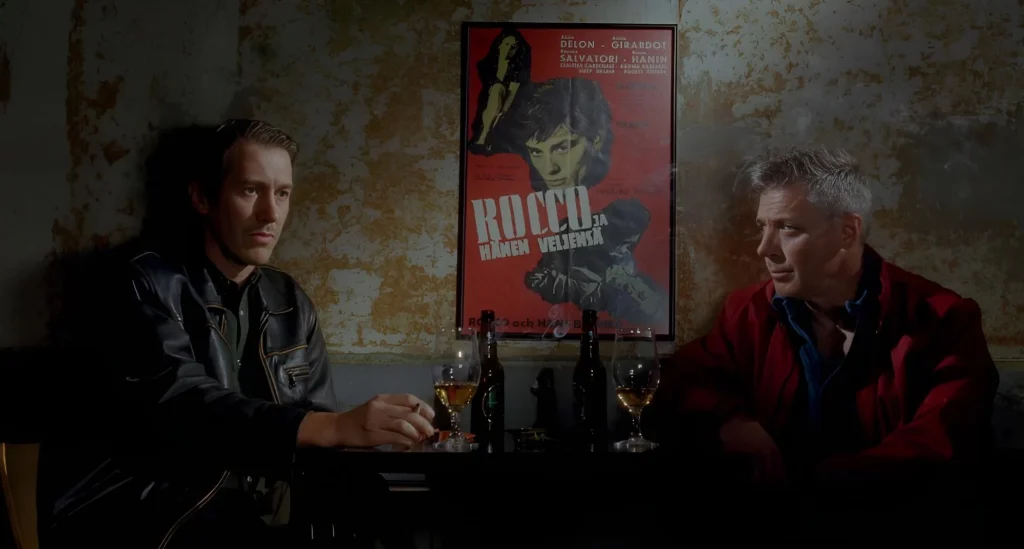Kuolleet lehdet
IMDB 7.4
Fans of the work of the Finnish original Aki Kaurismäki don’t need any explanation. I’ve been waiting for this film for six months, since its premiere at the Cannes Film Festival, where the shy Aki didn’t want to walk the red carpet, hid from photographers, and when they gave him an ovation after the screening, he fled the room. But for those who are completely unaware, it’s probably not worth starting with his new film. For a first introduction, “The Other Side of Hope,” “The Man Without a Past,” or my favorite “Le Havre” would be more suitable, for example. And “Falling Leaves” is a return to the roots and an homage to himself. It’s no wonder the director ironically calls the film the fourth part of his “Proletariat Trilogy,” which he made back in the 1980s (“Shadows in Paradise,” “Ariel,” and “The Match Factory Girl”).

The plot here, as always with Kaurismäki, resembles more of a casual sketch: a lonely supermarket employee, fired for taking an expired sandwich in her bag, meets another unfortunate soul, a loser-worker fired from a construction site for drunkenness. All the other directorial tricks – loneliness, poverty, little people thrown to the sidelines of life, gatherings in the bar with stony faces, restrained humor mixed with poignant sadness, vintage music – are also in place. Meanwhile, radio news about bombings in Mariupol and Kremenchug is playing in the background, which is an unusual moment for Kaurismäki. Usually, his characters live in their own world with rotary phones, antique jukeboxes, and the same radios, making it difficult to date his films. Oh, and here his regular muse, Kati Outinen, is absent. She’s getting old, unfortunately, but Aki found her an excellent replacement! It’s clear that he was looking for a specific type, and in the end, the unknown actress Alma Pöysti perfectly fits into his favorite image of a poor woman with a heightened sense of dignity.
In general, retelling Kaurismäki’s films is pointless; you have to see them for yourself. And experience their amazing therapeutic effect firsthand. Those very, forgive me, rays of goodness and hope that warm both the main characters and the audience. Every time I watch, I try to understand: how?! How does he, with all his self-repetitions and simple techniques, manage to tell such beautiful and touching stories about ordinary people? It’s incomprehensible. That’s why he’s a genius.